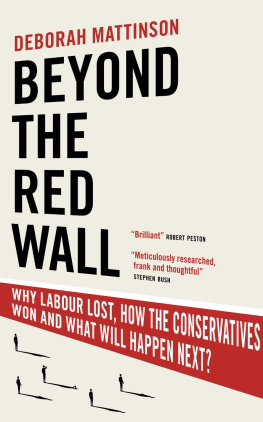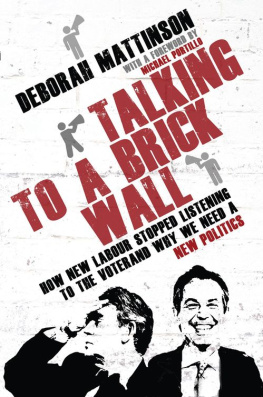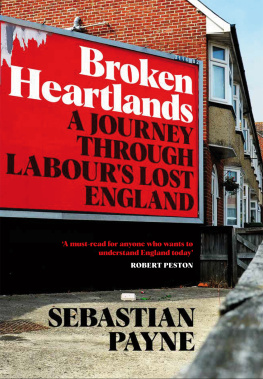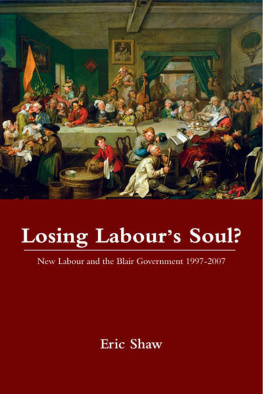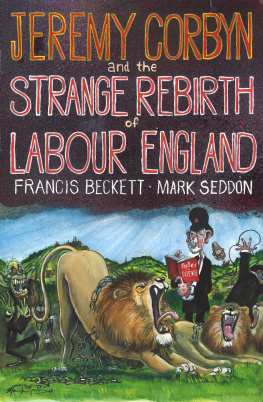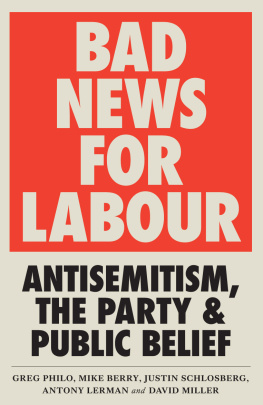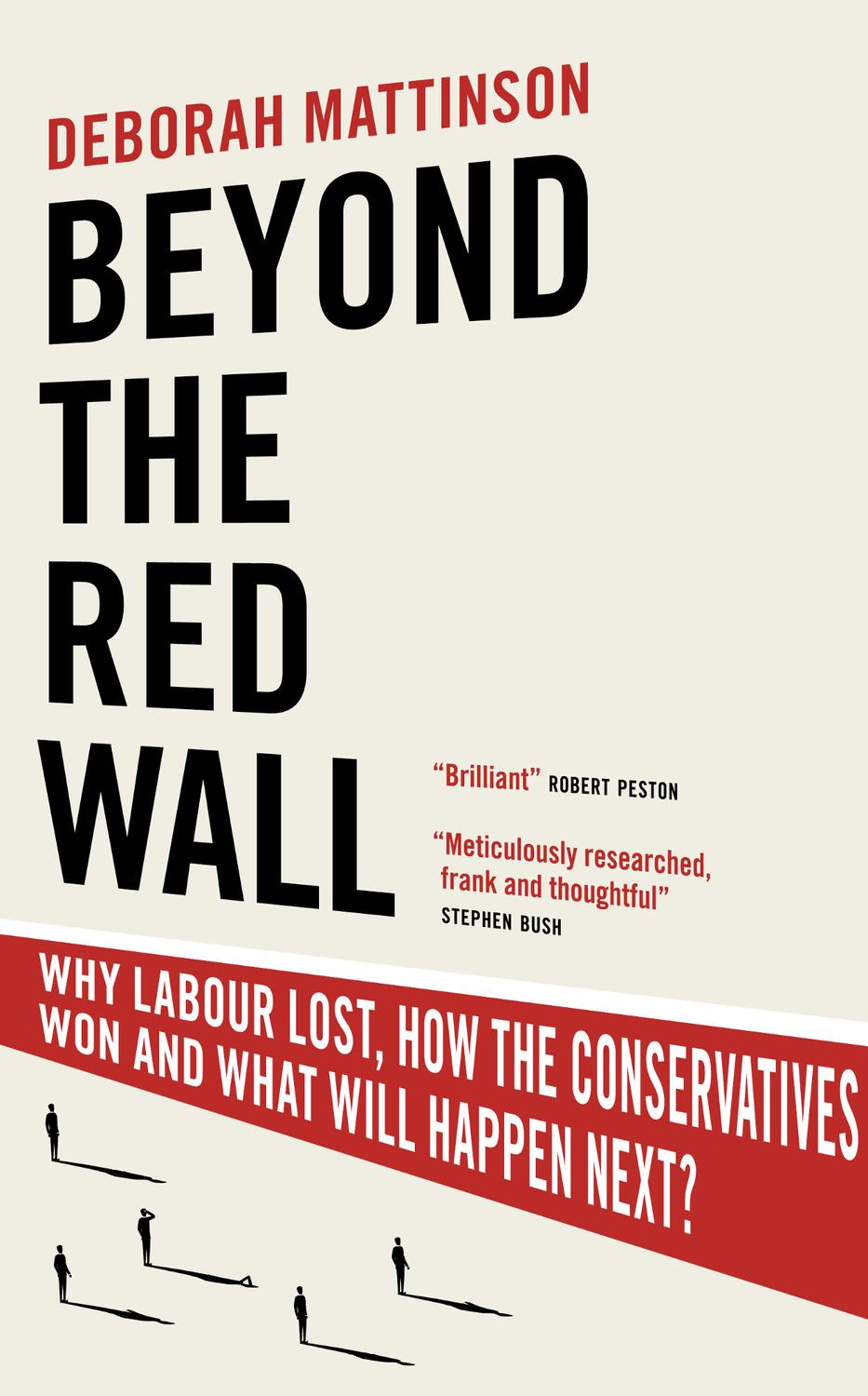
i
A brilliant and highly readable account of why so many traditional Labour supporters backed Boris Johnson in 2019.
robert peston, itv political editor
A meticulously researched, frank and thoughtful guide to the United Kingdoms new swing voters, what drives them and what that means for our politics.
stephen bush, new statesman political editor
Politics is always personal. The conversations here bring to life the changing mood among the individuals who gradually lost faith in Labour and granted the Tories a thumping majority. The warning to all politicians voters dont belong to you.
laura kuenssberg, bbc political editor
While others theorise about why lifelong Labour voters in the Red Wall seats switched to the Tories in such vast numbers, Deborah Mattinson takes the radical approach of going to ask them. What they said is frank, forthright and fascinating. This calm, compelling account by someone who has seen Labour at its best and worst reveals the real people behind the polls. It will make for difficult reading for both parties, but after years of neglect they expect to be heard and no party can expect to win without listening.
matt chorley, the times ii
In this devastating new assessment of the fall of Labours Red Wall, Deborah Mattinson unpicks our most recent history with deftness, clarity and piercing awareness. Matching engaging description with immense research and, above all, convincing argument, she finally gives voice to the long forgotten, definitively reporting how the Red Wall turned blue.
ayesha hazarika, evening standard
Deborah Mattinson brilliantly deconstructs the Red Wall, brick by brick, using her own research and expertise, helping us to understand this overlooked group and what makes it tick. For our leaders, learning the lessons of Beyond the Red Wall will be key to whoever wins the next general election.
christopher hope, daily telegraph
Deborah Mattinson has long been a shrewd and sympathetic analyst of voters and their motivations. Rich with real voices, Beyond the Red Wall is a must-read for anyone who wants to understand what drove so many in Labours heartlands to desert the party in 2019 and what it might take to win them back.
heather stewart, the guardian political editor
v
For Clara, Theo and Francis, whose idea this was, and for Dave, with much love and thanks.
CONTENTS
They forgot about people like us, up here. Were the forgotten people. Id like to think that might change now. Id like a party just for once to say, yeah, weve heard what youre saying, were going to do this.
I an, from Accrington, described himself as a plumber-slash-handyman. Well informed and articulate, he spoke for all the other men sitting round the table one blustery evening in February 2020. His frustration with politics was palpable. I was to hear the same feelings expressed again and again in the coming weeks: exasperation, even anger, with politicians who no longer understood or supported people like Ian. Ian, like pretty much everyone I spoke to, also described himself as a lifelong Labour voter. Ian, like pretty much everyone I spoke to, had voted Conservative for the first time in December 2019.
Former Tory strategist James Kanagasooriam is widely credited with inventing the concept of the Red Wall. As a child, he had been given a duvet cover featuring an Ordnance Survey map of the UK as a birthday present. He spent many evenings memorising the strange-sounding names of towns he had never visited and probably never would. As a teenager, starting to study politics, he was intrigued to see that, when the political map of Britain was overlaid on the duvet map, the bottom half was blue while the top half was red. He later described the sixty-odd seats forming the boundary between red and blue as a wall partly because of their geographical positioning: they form a physical barrier, a curved spine that rises up through the centre of the country, starting in the Midlands, reaching up to the north then across into North Wales, carving the country in two. He noted, however, that the wall was much more than that. It was an ideological divide.
I first came across the term just a few months before the 2019 election. The Times columnist Rachel Sylvester told me she had been talking to her Tory contacts, who had confided that they were targeting a group of long-standing Labour seats that they thought might just be winnable. She explained which seats they were: Theyre calling them the Red Wall. I was sceptical: these were seats that had rejected the Tories for decades in some cases for ever. They had stayed Labour because being Labour was part of their identity, practically written into their DNA. Voting Tory would surely be anathema to them. I struggled to imagine these loyal Labour working-class communities ever being able to stomach switching to the Conservatives, especially now, when the party was led by a Latin-spouting Old Etonian. It wasnt called the Red Wall for nothing. Yet, on 12 December, starting with Blyth Valley, I watched as seat after Labour seat collapsed to the Tories, challenging all conventional wisdoms about political tribalism. The Red Wall had turned blue.
Listening to voters the following week, surprised, relieved and hopeful were the words they used most often to describe their feeling about the election result. This response was as likely to come from former Labour voters as long-standing Conservatives. Even some Labour voters claimed to be relieved. The shock result had confounded their concern that the election would not be decisive. Continuing the stasis that had paralysed the nation for the previous four years was the out-come they had most feared. If theres a hung parliament again, well have to have a penalty shoot-out to sort it out, Mike, an undecided voter from Birmingham, had suggested a couple of weeks before polling day. Others in the focus group laughed, but Mike stood by his idea, pointing out that we were happy enough to settle a rather more important contest the World Cup in this way, so, why on earth not an election?
Its striking that voters had spent so much time worrying about the possibility of a hung parliament, given the decisiveness of the eventual result. The Tories won 43.6 per cent of the vote and 365 seats. Labours vote dropped to 32.2 per cent and just 203 seats. It was their biggest defeat since 1935. I usually pride myself on my performance on the office sweepstake at BritainThinks, the insight and strategy consultancy I cofounded ten years ago. This time I was bang on with the Tory vote share up a relatively modest 1.2 per cent from 2017. However, I let myself down badly by underestimating the sheer scale of Labours loss down 7.8 per cent from last time, leaving the party largely confined to big cities and a handful of university towns. The Tories had surpassed their own most optimistic predictions, taking an eighty-seat lead. Labour will now need 124 net gains to achieve a majority of just one. Its quite a challenge.
Of course, the biggest upset on what was generally a miserable night for Labour turned out to be just how many of the Tories wins came from the Red Wall. These old coal, steel and manufacturing constituencies were regarded as the home of the traditional Labour vote: working-class men and women whose loyalty had underpinned past Labour victories, including the 1997 landslide. Labour owned these places many voters had never voted anything else but all that had changed. Post-election analysis suggested that long-standing class-based loyalties mattered much less now. In fact, the Tories led across all social classes in 2019, performing especially strongly with C2DE social groups (semi-skilled and unskilled workers: drivers, retail workers, care assistants; people who might self-define as working class). They also won nearly half of all manual workers and 58 per cent of those whose educational attainment was GCSE level or less.

